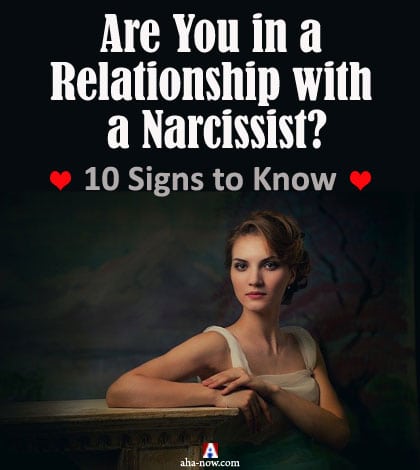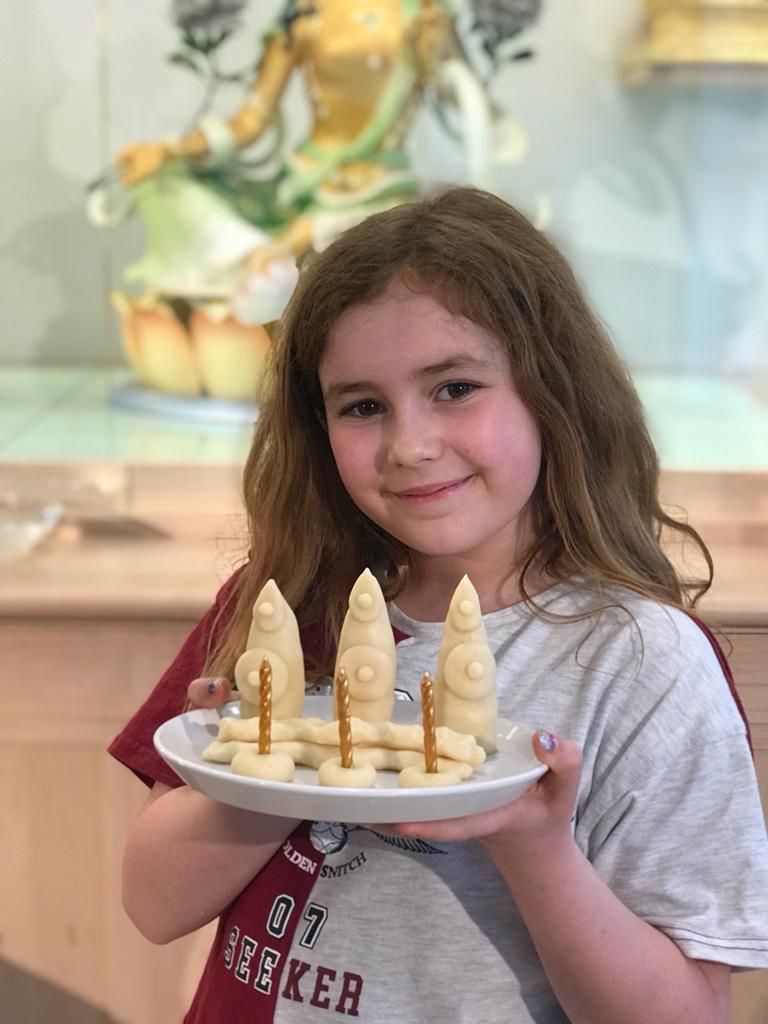Are You in a Relationship With a Narcissist? 10 Signs to Know
Is your partner self-centered and has a dual personality? Is she/he a narcissist? Here are the signs to know if you are in a relationship with a narcissist.

If your partner is mostly absorbed in himself or herself then know that this is not normal. On top of it, if your partner is self-centered, has a dual personality, and starts to deceive, you could be in a relationship with a narcissist. Here are more signs that may help you figure out if your partner is a narcissist. ~ Ed.

Do you and your partner love each other? Do you find yourself apologizing for mistakes you haven’t even committed? And do you find yourself being cautious, trying not to disappoint your partner? If the answers are in the affirmative, you are perhaps trapped in a relationship with a narcissist.
A narcissistic personality disorder (NPD) is a mental disorder in which a person has an extreme sense of self-importance and self-esteem. People with this trait believe they are superior to others and have little regard for the feelings of others.
Here are ten common characteristic traits to look for if you feel you are in a relationship with a narcissist.
10 Signs You Are In A Relationship With A Narcissist
Does your partner display lack of empathy or has a superiority complex? Is he or she an egocentric or lacks close friends? There are many other signs that can help you spot a narcissist.
Charismatic Personality
The thing with a narcissist is that they appear excessively charming initially. Anyone would not fall for a person who seems to know it all, loves himself, plans dates, and brings flowers. You begin to fall for them because they seem to be doing everything right as if they have a vision and their whole life is sorted.
It is only when you disagree that they begin to lose their mind. A narcissist would leave you wondering how you hurt them and how you can rectify your mistakes. Narcissists are experts at convincing you that you are at fault and that you must be the one to resolve it.
Self-Centeredness
A narcissist loves herself/himself and is hungry for attention and appreciation. You are sitting at a café, and your partner does all the talking. S/He has mentioned to you her/his love for music, how s/he excels at everything s/he does, how people at work admire and so many things here and there.
But did you notice that all s/he has talked about was related to her/him? A narcissist is so full of herself/himself that s/he has nothing and no one else to talk about. S/He interrupts you in the middle or stays distracted when you are speaking. So, when you are in a relationship with such a person, your ideas, thoughts, and values suddenly become less important.
Dual Personalities
The attraction and charm one feels at the beginning of a relationship do not last forever. But with a narcissist, the transition from a charming and humble person to someone you vaguely understand can make you feel trapped in a place you hardly know. A narcissist often speaks in a reassuring tone when confronted with tricky questions.
Lack of Empathy
A narcissist does not know how to comfort others. A person who suffers from NPD cannot feel how the other person is feeling. So, they do not have the words to offer an apology or respect the opinions or emotions of others. Instead, they may even belittle your own experience by pointing out their own stories.
“It is not a big deal, but, in my case, things got far worse.“
“It is such a petty thing. You do not need to create havoc about it.“
Superiority Complex
It is only natural that a narcissist would find himself to be the most superior. S/He would tell tales of her/his position at work, her/his success as a student, and how high her/his prospects were. Your achievements are tiny; her/his achievements call for a celebration.
S/He tells you stories of how demanding it is to be above everyone else. The moment your partner begins to talk as superior to you, please understand that he is a walking red flag.
“I am above everyone else.“
Deceive You
John and Darcy were married off with a grand ceremony. John was caring, doting husband for a few months, then he started coming home late, became secretive with this mobile. Eventually, Darcy found that he was having multiple affairs.
A narcissist has an excellent manipulative quality, and s/he deceives you into believing that you are at fault, that you are overly emotional, and that you hurt them.
Knows No Boundaries
For a narcissist, the world revolves around them. So, the feelings of others matter hardly. S/He is unable to see and feel anything beyond herself/himself and makes false promises and wrong commitments, for example, borrowing money and not returning them on time. S/He has no regard for the thoughts of others, their feelings, emotions, and personal space.
“You should have reminded me, how could something so trivial be so important to you?”
Lack of Close Friends
You will notice that a narcissist rarely has any friends. So, when you are in a relationship with them, they would freak out at hanging out with friends, act irrationally when you go out with your friends, and complain about not giving him enough time.
Make Fun of You
What is often excused as flirtatious teasing quickly becomes meaner and more consistent. A narcissist will nitpick, bring you down, call you names, and make inappropriate jokes. By doing so, s/he tries to bring down your self-esteem and raise her/his own.
“It is so simple; I cannot imagine how you can barely manage to do anything on your own“
“You could have easily got this job if you cared even a little to study.”
Egocentric And Cannot Accept No
Accepting no as an answer is not a cup of the tea of a narcissist. Saying ‘No’ to a date night, a cinema, or food freaks them out. And when they are convinced that you are truly going to end the relationship and that they cannot entice you back, they will set out to hurt you for discarding them.
Conclusion
Interestingly, narcissism exists at healthy levels in everyone. All of us are narcissists sometimes. Narcissism turns ugly when a person is so absorbed in herself/himself that in order to make herself/himself feel better, s/he finds it important to look down upon others.
Putting forward your opinions, talking, and communicating freely is essential for a healthy relationship. While a person can change if they are willing to accept and then improve, changing one’s behavior at the cost of your mental health is unnecessary. So, put yourself first, fall in love with yourself, talk to your partner, and see if things could be improved. If not, it’s up to you if you want to continue or walk out of the relationship.
Over to you –
Have you ever been in a relationship with a narcissist? Share your experiences and tips to deal with them in the comments section.
Disclaimer: Though the views expressed are of the author’s own, this article has been checked for its authenticity of information and resource links provided for a better and deeper understanding of the subject matter. However, you're suggested to make your diligent research and consult subject experts to decide what is best for you. If you spot any factual errors, spelling, or grammatical mistakes in the article, please report at [email protected] Thanks.

 AbJimroe
AbJimroe 
































